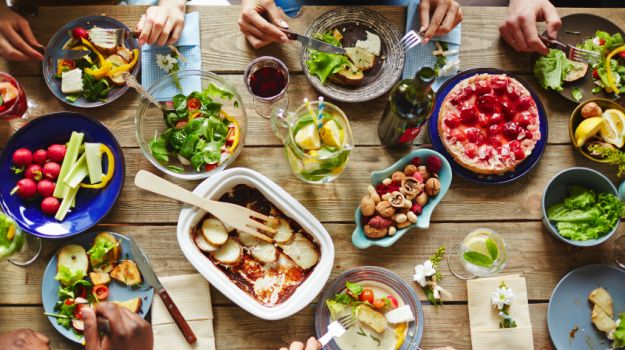Climate change is a reality and there’s much that we all need to do to save our planet, making life sustainable and energy renewable. We don’t realise this, but every little thing we do, eventually affects the environment. Food too plays a big role in the environment. Agriculture, food processing units, animal rearing and food wastage are some of the major factors hampering the Earth; getting only worse over the years. This world has finite resources and we are polluting them with the use of chemicals and other toxins. The truth is, more we ignore these issues, the more we will find ourselves in trouble in the coming years. This, is the reason why we need to start, and start now. If you are wondering how you can help, you will be surprised by the many little ways you actually can save the world.1. Food is ValuableFirstly, we need to understand that food is valuable. Yes, a lot of us have the money. Yes, many may be able to walk into a supermarket or restaurant and pick whatever the heart demands. But try and always ask yourself, do you really need it? The resources in this world are limited, and more we learn to value them and use them wisely, the more it will benefit us.

2. Stop Food WastageRemember when you were a little child and every time you tried to waste some food, your mother would stand guard to ensure that you finished every morsel on the plate? It was a strict no, and you had to finish every item that you took on your plate, including that little serving of bitter gourd or some other strange tasting veggie. If only that rule still applied! You will be surprised to learn the amount of food wastage that every restaurant and hotel or even an urban household is guilty of. While the poor go hungry, some of us are mindless about the varied choices that we are lucky to be surrounded with.
 3. Buy LocalYes, that should be your new mantra. While the exotic imported ingredients on the supermarket shelves may look gorgeous, luring you to pick them up, the fact is, they are far from being fresh or nutritious. What you are consuming are probably empty calories (and chemicals). According to Brian Halweil, author of Eat Here: Homegrown Pleasures in a Global Supermarket, "transporting produce sometimes requires irradiation (zapping the produce with a burst of radiation to kill germs) and preservatives (such as wax) to protect the produce which is subsequently refrigerated during the trip. While no definitive study quantifies the impact of these treatments, there is good reason to believe that eating local is really the safer option."So learn to appreciate the bounty of the region you come from. They are your best sources of vitamins and minerals, and they are all around you!
3. Buy LocalYes, that should be your new mantra. While the exotic imported ingredients on the supermarket shelves may look gorgeous, luring you to pick them up, the fact is, they are far from being fresh or nutritious. What you are consuming are probably empty calories (and chemicals). According to Brian Halweil, author of Eat Here: Homegrown Pleasures in a Global Supermarket, "transporting produce sometimes requires irradiation (zapping the produce with a burst of radiation to kill germs) and preservatives (such as wax) to protect the produce which is subsequently refrigerated during the trip. While no definitive study quantifies the impact of these treatments, there is good reason to believe that eating local is really the safer option."So learn to appreciate the bounty of the region you come from. They are your best sources of vitamins and minerals, and they are all around you!
 4. Seasonal EatingBecause we have the luxury of picking up all sorts of fruits and vegetables from the supermarkets, we fall prey to the vicious cycle of mass production, and more often of unnatural means. It is not without reason that our elders tell us that there is a season for everything. Wouldn’t you agree when I say that red carrots and oranges taste the best come winter? Or summers are redundant without biting into luscious mangoes?According to a study done by researcher in Japan, they found a huge difference in the vitamin C content of spinach harvested in summer versus that in winter. Similarly, a research study conducted by the Ministry of Agriculture, Fisheries and Food in London, England, found significant differences in the nutrient content of pasteurized milk in summer versus winter due to differences in the diets of the cows, who were fed more salt-preserved foods in the winters.Keep an eye out on the seasonal chart to learn what fruits and vegetables are in season and plan your diet accordingly. Besides having some fun in the kitchen, you will also be loading up on essential nutrients and contributing to ending the demand and supply of all-year round produce.
4. Seasonal EatingBecause we have the luxury of picking up all sorts of fruits and vegetables from the supermarkets, we fall prey to the vicious cycle of mass production, and more often of unnatural means. It is not without reason that our elders tell us that there is a season for everything. Wouldn’t you agree when I say that red carrots and oranges taste the best come winter? Or summers are redundant without biting into luscious mangoes?According to a study done by researcher in Japan, they found a huge difference in the vitamin C content of spinach harvested in summer versus that in winter. Similarly, a research study conducted by the Ministry of Agriculture, Fisheries and Food in London, England, found significant differences in the nutrient content of pasteurized milk in summer versus winter due to differences in the diets of the cows, who were fed more salt-preserved foods in the winters.Keep an eye out on the seasonal chart to learn what fruits and vegetables are in season and plan your diet accordingly. Besides having some fun in the kitchen, you will also be loading up on essential nutrients and contributing to ending the demand and supply of all-year round produce.
 5. Cut Down on MeatYes, you have heard it before and probably get annoyed that everyone preaches about turning vegetarian, but there may be some truth to it. Animal rearing requires a lot of resources, including land area and water, and meat production contributes hugely to greenhouse gas (GHG) emission. According to Steinfeld et al, a group of researchers from Food and Agriculture Organization of the United Nations, "the livestock sector emerges as one of the top two or three most significant contributors to the most serious environmental problems." This includes stresses such as deforestation, desertification, excretion of polluting nutrients, overuse of freshwater, inefficient use of energy, diverting food for use as feed and emission of GHGs.A Smithsonian study estimates that the need for grazing land and grain feed leads to the destruction of a land area equivalent to seven football fields in the Amazon basin every single minute. Also, meat production requires gallons and gallons of water. So it can be said that a single quarter-pounder hamburger is the equivalent of giving up four weeks of luxurious showers! In short, we don’t expect you to turn vegetarian overnight, but you can make a conscious effort to cut down.
5. Cut Down on MeatYes, you have heard it before and probably get annoyed that everyone preaches about turning vegetarian, but there may be some truth to it. Animal rearing requires a lot of resources, including land area and water, and meat production contributes hugely to greenhouse gas (GHG) emission. According to Steinfeld et al, a group of researchers from Food and Agriculture Organization of the United Nations, "the livestock sector emerges as one of the top two or three most significant contributors to the most serious environmental problems." This includes stresses such as deforestation, desertification, excretion of polluting nutrients, overuse of freshwater, inefficient use of energy, diverting food for use as feed and emission of GHGs.A Smithsonian study estimates that the need for grazing land and grain feed leads to the destruction of a land area equivalent to seven football fields in the Amazon basin every single minute. Also, meat production requires gallons and gallons of water. So it can be said that a single quarter-pounder hamburger is the equivalent of giving up four weeks of luxurious showers! In short, we don’t expect you to turn vegetarian overnight, but you can make a conscious effort to cut down.  6. Crop CycleCrop cycle is the foundation of agriculture. Each crop has its growing period and how the changing season, soil and the natural environment impacts it growth. And more than anything, soil is a natural resource and overusing it only reaps it off its incredible nurturing properties. Yet we use it and abuse it over and over again as we adopt aggressive agricultural practices, which make available all-year round produce to our neighbourhoods. While it ensures the availability of constant food sources, the question really is, at what cost? Remember the time when we would havemakki ki rotior bajra only in winters, ragiduring early spring and jowar for summers? There is a right time for the good things in life, and you need to wait for it.
6. Crop CycleCrop cycle is the foundation of agriculture. Each crop has its growing period and how the changing season, soil and the natural environment impacts it growth. And more than anything, soil is a natural resource and overusing it only reaps it off its incredible nurturing properties. Yet we use it and abuse it over and over again as we adopt aggressive agricultural practices, which make available all-year round produce to our neighbourhoods. While it ensures the availability of constant food sources, the question really is, at what cost? Remember the time when we would havemakki ki rotior bajra only in winters, ragiduring early spring and jowar for summers? There is a right time for the good things in life, and you need to wait for it.
 7. Oh Fish!There was a time when we would wait desperately for the monsoon season to get over in order to relish our beloved hilsa, rohu, pomfret, mackarel and other fish. Monsoon time is their breeding season. But over the years, due to the high demand of fish, there has been no respite to this natural process, as fish trawlers are over-harvesting, hampering the natural cycle. According to the environmental activist organisation Greenpeace, 80% of fish stocks around the world are over exploited or on the verge of being so.How can you help? Find out about the right season, and buy accordingly. Abstain from fish in their breeding season, to maintain the marine ecological balance. Remember, there’s more than what meets the eye.
7. Oh Fish!There was a time when we would wait desperately for the monsoon season to get over in order to relish our beloved hilsa, rohu, pomfret, mackarel and other fish. Monsoon time is their breeding season. But over the years, due to the high demand of fish, there has been no respite to this natural process, as fish trawlers are over-harvesting, hampering the natural cycle. According to the environmental activist organisation Greenpeace, 80% of fish stocks around the world are over exploited or on the verge of being so.How can you help? Find out about the right season, and buy accordingly. Abstain from fish in their breeding season, to maintain the marine ecological balance. Remember, there’s more than what meets the eye.

8. Go OrganicYou have heard it a million times and you still hear it time and again. Going organic is the way ahead. Most of the "fresh" foods available in the markets are all laden with chemicals and pesticides, which over the years may end up causing various harmful effects to our body, such as cancer, to name one. It’s about time you start paying a little attention to what you are filling your grocery carts with and how you can make a change for yourself and your dear ones.
 9. Cook FoodEasier said than done, but there is an immense pleasure in being able to cook your own food. The busy lives that we live today, where we are constantly chasing time, we often tend to dine out and get our hands on any fast food to curb those hunger pangs. And that’s exactly where we are going wrong. Say goodbye to packaged, processed and fast food, and start taking some time out to cook. Pick your favourite food items and find easy recipes to dish them out, and you will be surprised on the many benefits it brings about to your health.
9. Cook FoodEasier said than done, but there is an immense pleasure in being able to cook your own food. The busy lives that we live today, where we are constantly chasing time, we often tend to dine out and get our hands on any fast food to curb those hunger pangs. And that’s exactly where we are going wrong. Say goodbye to packaged, processed and fast food, and start taking some time out to cook. Pick your favourite food items and find easy recipes to dish them out, and you will be surprised on the many benefits it brings about to your health.
 10. Grow Your GreensThis is actually the best way to eating healthy and saving the environment. And it is extremely easy. All you need is a little space in your home – a balcony, window sill or a backyard – and some basic tools to get started. Once you get into the flow, you could be plucking fresh tomatoes, herbs, chillies, lime et al right at your place. To know more, read Hooked on Greens: 10 Exotic Veggies That You Can Grow at Home.
10. Grow Your GreensThis is actually the best way to eating healthy and saving the environment. And it is extremely easy. All you need is a little space in your home – a balcony, window sill or a backyard – and some basic tools to get started. Once you get into the flow, you could be plucking fresh tomatoes, herbs, chillies, lime et al right at your place. To know more, read Hooked on Greens: 10 Exotic Veggies That You Can Grow at Home.

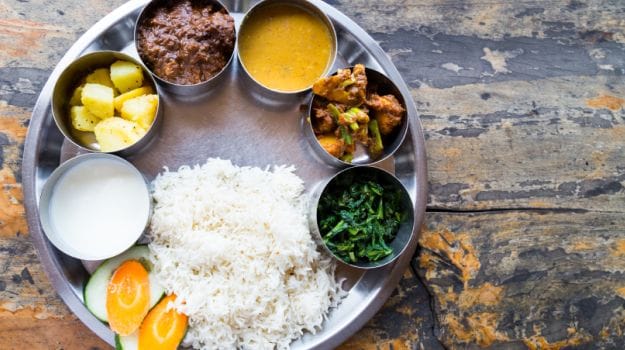
2. Stop Food WastageRemember when you were a little child and every time you tried to waste some food, your mother would stand guard to ensure that you finished every morsel on the plate? It was a strict no, and you had to finish every item that you took on your plate, including that little serving of bitter gourd or some other strange tasting veggie. If only that rule still applied! You will be surprised to learn the amount of food wastage that every restaurant and hotel or even an urban household is guilty of. While the poor go hungry, some of us are mindless about the varied choices that we are lucky to be surrounded with.
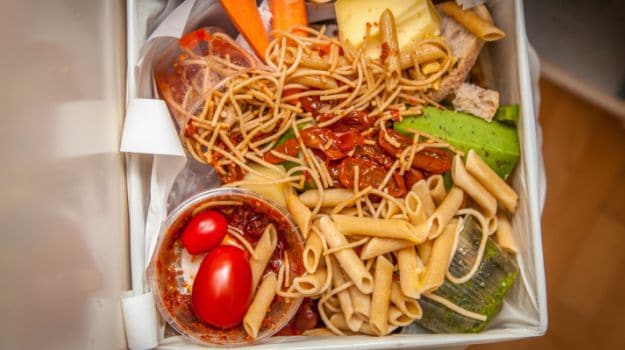
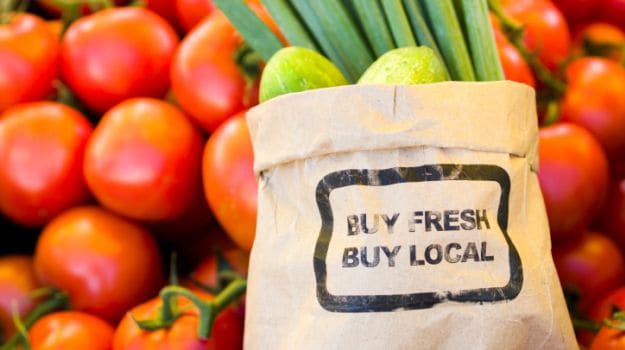
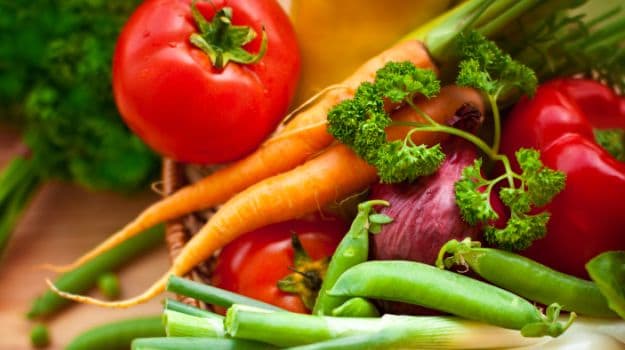

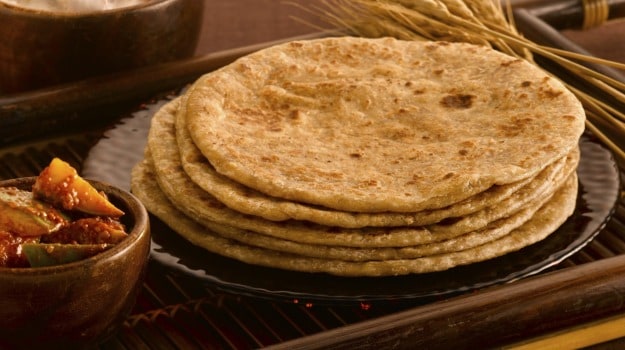
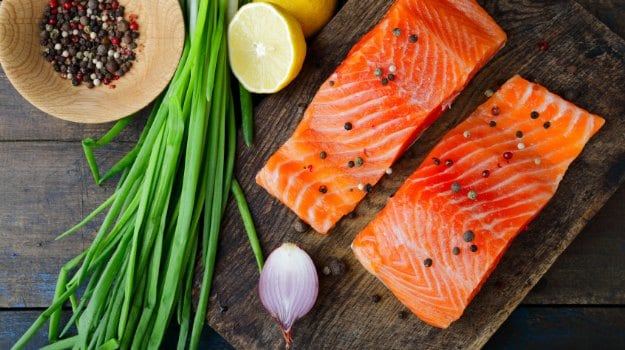
8. Go OrganicYou have heard it a million times and you still hear it time and again. Going organic is the way ahead. Most of the "fresh" foods available in the markets are all laden with chemicals and pesticides, which over the years may end up causing various harmful effects to our body, such as cancer, to name one. It’s about time you start paying a little attention to what you are filling your grocery carts with and how you can make a change for yourself and your dear ones.
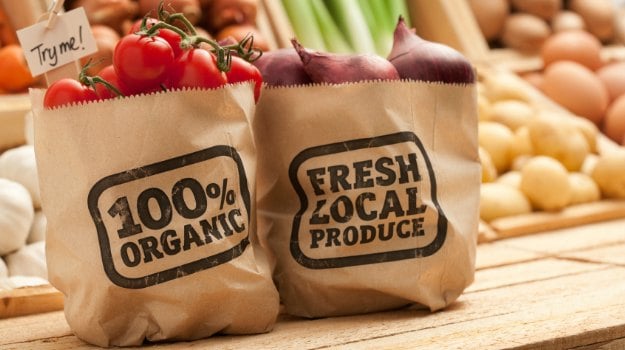

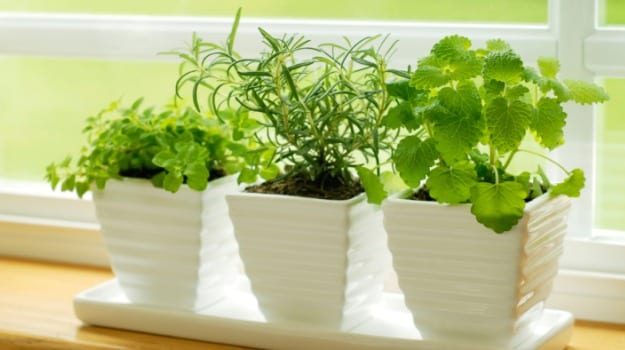
Advertisement








